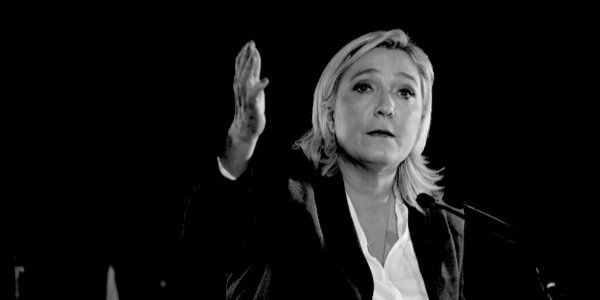SO THEY finally got her, and got her good. Where the US deep state failed with its lawfare against Donald Trump, the French état profond has shown itself to be more at liberty to disqualify the bearers of opinions it finds objectionable. Astonishingly, Marine Le Pen, leader of the nationalist Rassemblement National (RN) has not just been banned from standing for the third time for the French presidency, she has also been sentenced to two years in prison (though she will be fitted with a tag and kept under ‘house arrest’) with another two years suspended. Political opponents prevented from standing by ‘independent’ judicial fiat then thrown in prison? Move over, Putin. Welcome to democracy à la française.
The charges against Le Pen and nine other members of her party, Members of the European Parliament (MEPs) at the time in question (between 2004 and 2016), were that they had used funds provided by the European Parliament (NB: our money) to employ assistants who were not ‘neutrally’ working for the party, but actively involved in party political work back in France. This was made illegal in France by French MPs in 2016, with little opposition from politicians desperate not to appear to their electorate to be on the take. Le Pen herself did not object to the law at the time (though her more radical niece, Marion Maréchal, the only Front National MP in 2016, did vote against it).
For those who object to all use of money raised from taxes to pay for political activities, there is clearly a case to answer. That, however, does not mean that all defendants are treated equally. Indeed, the current presidentially-appointed Prime Minister of the Potemkin French Parliament, François Bayrou (described as a political ‘centrist’ and a staunch ally of Emmanuel Macron during his first election year in 2017), was last year acquitted of similar charges (albeit he was being judged as a party leader, not as an MEP; members of his party who were sitting in the European Parliament at the time were given suspended prison sentences).
Bayrou reacted rather ambiguously to the RN/Le Pen verdict, saying he was ‘troubled’. Even France’s answer to Jeremy Corbyn, Jean-Luc Mélenchon, no fan of Le Pen, was concerned enough to suggest that the proper place for delivering verdicts on politicians is at the ballot box, not in the courts. As other more astute commentators have pointed out, those who are gloating about Le Pen’s judicial ‘execution’ (to quote RN President and close Le Pen ally, Jordan Bardella, tipped to be her replacement) would do well to watch their own backs if France has now openly become the ‘Republic of the Judges’.
It has not been widely reported in the English-speaking press, but the judge who sentenced Le Pen to prison, Benedicte de Perthuis, stated that she had decided to apply the ban on Le Pen standing in an election for the next five years as there was a ‘risk of reoffending’. She added that allowing a candidate who had been found guilty of committing a crime to run for President would be ‘a threat to public order’. Frighteningly, the ‘risk of reoffending’ statement relates to the fact that Le Pen and her co-defendants denied they had done anything wrong (a solid line of defence in any trial) and so could therefore, in de Perthuis’s expert view, be expected to recommit the crime. Saying ‘I didn’t do it’ in a French court can now make you eligible for a harsher punishment, it seems.
With high profile cases such as former right-wing President Nicolas Sarkozy recently being put under house arrest for corruption, and former right-wing presidential candidate François Fillon being investigated for employing his wife as an assistant, sinking his chances of election against Macron in 2017, French voters might be forgiven for thinking that the judiciary in France has a problem with those who do not belong to the left-wing consensus. Moreover, this comes just a month after judges on the Council of State upheld the decision of the French Ofcom (known as Arcom) to close two TV channels, notably C8, which had a daily chat show that regularly hosted the likes of Jordan Bardella and other exiles from polite French society. ‘A lack of editorial control’ was the legal judgement. Meaning political outsiders were not kept off screens, as would be right and proper.
From the point of view of the French people, however, the cat is long out of the bag. Despite Le Pen’s shortcomings as a political leader, she has become a lightning rod for political dissent, for voters disgusted at the self-satisfied nature of the French establishment. She may not (unlike, it seems, Trump) have yet learned her lesson about the fruitlessness of trying to cosy up to the political mainstream, but that is not important just now. What matters is that a significant number of the discontented have been robbed of their candidate. While we’re unlikely to see a version of the Capitol riot, where this frustrated energy goes next is hard to predict.
Political opponents imprisoned. TV channels closed. From Kiev to Paris via Bucharest, people who want an end to being governed by the unaccountable and the unelected minority should all be echoing the words of Viktor Orbán: Je suis Marine!











